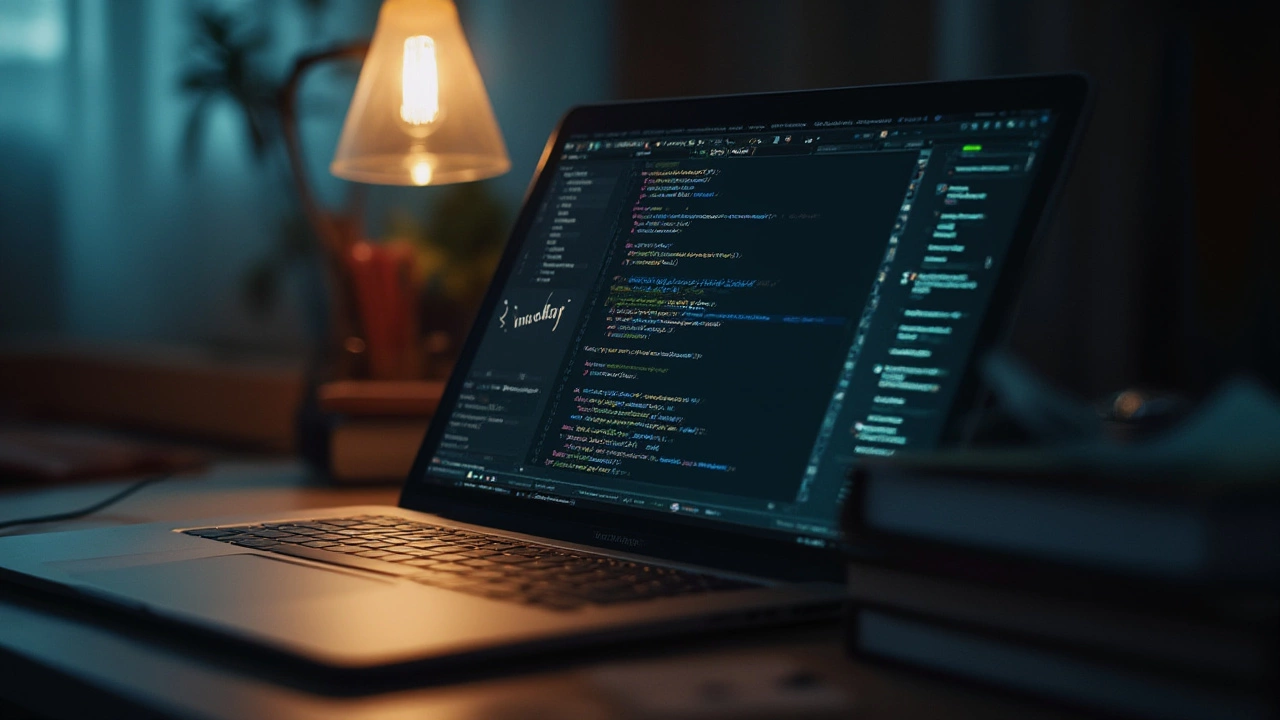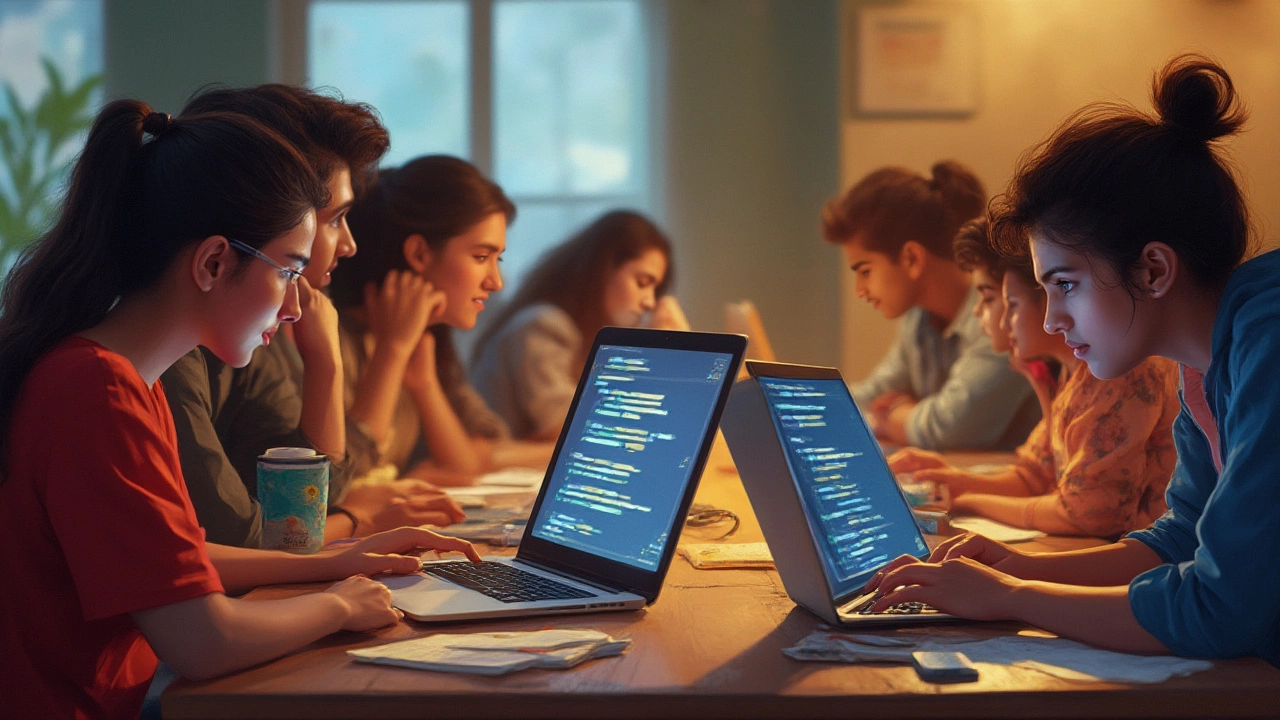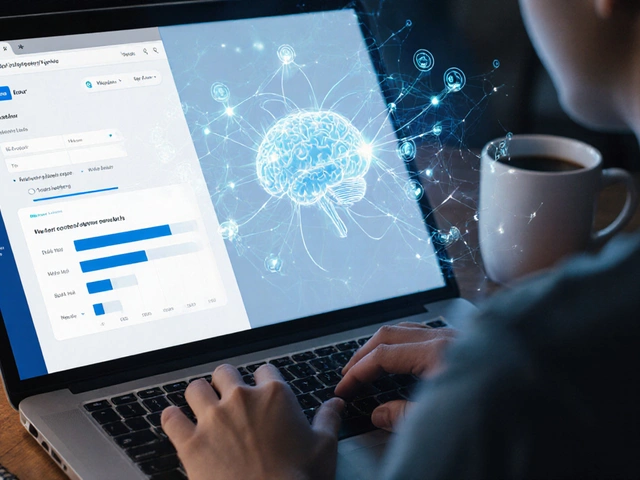Three months. That’s just about one season of your favorite TV show, a slightly extended trial run at a new job, or the time it takes most people to completely forget their New Year’s resolutions. But—can you really go from zero to coder in that tiny sliver of a year? There’s no shortage of social media success stories: people who went from total beginner to software developer in a quarter of a year. Scroll through Reddit, YouTube, or LinkedIn, and it seems like everyone and their neighbor can do it. So why does learning to code still have this mystical, intimidating vibe? Let’s strip away the hype for a minute. If you ever wanted a crystal-clear, no-nonsense answer to whether you can actually learn to code in three months, you’re in the right place.
What Learning to Code in 3 Months Really Means
First things first: when people say they "learned to code" in three months, what are they actually talking about? Coding, in its simplest form, means you can write instructions that a computer can execute. But this covers a lot of ground. There's a giant difference between writing your first "Hello World" program and being able to build a snazzy, bug-free web app from scratch. So, if your goal is just to understand what coding is and create simple projects, three months is actually a reasonable timeline. You can absolutely pick up the basics of HTML, CSS, and maybe even JavaScript for the web—or Python, if data crunching is your thing. Projects like a personal website, a calculator app, or a basic to-do list? All doable, even if you start from ground zero.
Now, here’s the reality check. Coding is a skill, not a destination. Imagine trying to learn a new language—say, French—in 90 days. Could you cram enough vocab and grammar to order coffee and have a basic chat with a Parisian waiter? Sure. But could you write poetry or negotiate an international business deal? That would probably take a lot longer. It's the same with code. Some studies (like the 2021 Stack Overflow Developer Survey) have shown that the majority of professional developers have been coding for years, often building projects in their spare time long before any formal class. Three months is enough to get conversational, not fluent.
The real make-or-break factor is consistency. Spending one hour a week for 12 weeks won’t get you much further than installing a text editor and writing stuff that almost looks like code. Challenge yourself instead: can you put in one to three hours a day? If you really show up, stay curious, and don’t skip the confusing parts, you’ll be amazed at what your brain can soak up. Even seasoned coders fumble with the basics sometimes (ask any developer who Googled 'how to reverse a string in Python' this week), so cut yourself some slack if it takes a while to "get it." Most people hit that infamous wall around week five: everything feels overwhelming and impossible. This is normal. Ride it out. Use forums like Stack Overflow or Discord coding communities, and don’t be afraid to post what feels like a "dumb question"—every coder has at least one embarrassing beginner story.
Learning styles matter more than you’d think. Are you a video learner? Check out YouTube channels like freeCodeCamp or Traversy Media. Like to read? There are beginner-friendly books ("Automate the Boring Stuff with Python" is a favorite for a reason). Prefer structure? Paid platforms like Udemy, Coursera, and Codecademy literally turn coding into a game, tracking your progress and giving you projects at every stage. The method isn’t as important as picking one and not bouncing around every week. If you want to really stick it, keep a coding journal. Jot down what you learned, what tripped you up, and what you built each day. Watching your growth will boost your confidence when things get tough.
The big trap: thinking you have to master everything. Don’t try to learn every language, framework, or tool in sight. Pick one, stick with it, and focus on building tiny, complete projects. Let your first app be ugly, as long as it works. Remember that messy code can always be cleaned up. And don’t get obsessed with memorizing syntax—the best coders “cheat” with Google, official docs, and GitHub repos all the time. The most important thing is to actually type out code. Watching tutorials without getting your hands dirty is like watching someone else play guitar and expecting your fingers to learn the chords. Type, break things, fix them. That’s real learning.

What You Can Actually Achieve in 90 Days
Here’s where things get juicy. Three months is more than enough time to build real-world coding muscles—but there are limits to how far you can flex. Let’s be blunt. No one graduates from three months of beginner code into a comfy six-figure tech job. The flashy Instagram posts showing such transformations are the ultra-rare exceptions, not the rule. However, three months can get you comfortable enough to see tech differently. You’ll be able to talk to developers without feeling lost, automate boring tasks at work, or even start freelancing simple jobs if you play your cards right.
A lot of coding courses use the classic “project-based learning” approach. Why? Because building something useful cements knowledge like nothing else. Take React, for example. It’s plastered all over job listings, but you don’t have to understand the entire ecosystem to build a weather app, a blog, or a movie search page. With resources like code walkthroughs and open-source projects, you can clone sites, remix them, and learn fast by doing. The trick is picking realistic projects that match what you’ve learned so far. Here are a few examples of what’s genuinely doable in three months with focused effort:
- A personal website or portfolio (HTML, CSS, maybe some JavaScript for cool effects).
- A budget tracker using Python and a simple text file, or a Google Sheets integration.
- A to-do list app (classic, but actually teaches you full-stack basics if you add features step by step).
- Automation bots to handle repetitive tasks, like mass-renaming files or sending emails automatically.
- Scraping simple websites for data (just make sure it’s legal and ethical!).
In fact, some coding bootcamps like Le Wagon, Flatiron School, and General Assembly have condensed curriculums that take total newbies through whirlwind schedules of daily challenges, group projects, and peer reviews—and by the end of 8-12 weeks, students often demo pretty impressive apps. But, here’s the catch: these programs are incredibly intensive (think 60-80 hours a week). Most people don’t have the luxury to quit everything and code full time. If you’re juggling a day job, family stuff, or school, adjust your expectations. Part-time learning means the journey will stretch longer.
One cool stat: according to Codecademy, people who code at least five hours a week show the best progress and retention in self-paced courses. So if you’re busy, don’t stress about marathon sessions. Instead, carve out a “power hour” each day—this consistent practice beats “weekend warrior” cramming almost every time. And, if you start doubting your progress, take a break and look back at your first week’s code. That growth is hard to spot day to day, but after three months, you’ll be surprised how much you’ve actually learned.
Another smart tactic: join a small online community, like a beginner-friendly Discord server or subreddit (r/learnprogramming is a lifesaver). Post your projects, ask for feedback, and help answer questions when you can. Peer learning and accountability will help you last the distance, especially on days when you’d rather scroll than code. Some folks even find coding study buddies and commit to virtual "hackathons" or weekly check-ins. It’s like having a workout partner who keeps you honest—except instead of sweating, you’re crushing bugs together.
So what’s the punchline? You can absolutely "learn coding" in three months—but you’re starting a journey, not hitting a finish line. If your dream is to land a job as a junior developer, expect to keep honing your skills, building side projects, and studying for several more months. But after three months, you’ll have gone from zero to building, and that’s a game-changer. The biggest win? You’ll stop seeing computers as magic boxes and start thinking, “hey, I can bend this thing to my will.” That confidence is worth its weight in gold.

Essential Tips for Surviving—and Thriving—While Learning to Code Fast
Let’s be honest: the hardest part of learning to code isn’t the syntax, the projects, or even the errors. It’s keeping your motivation alive when things get ugly. Coding can sometimes feel like hitting your head against a wall, only to realize the wall is actually just the next step in the puzzle. But don’t let that scare you away. Here’s how to make your three-month adventure not just bearable, but genuinely fun and effective.
- Pace yourself smartly. Don’t try cramming everything into marathon study days. It’s better to code for 45 to 90 minutes and really focus, then take a break. Your brain needs time to absorb new info. If you code when you’re too tired, you’ll just make more mistakes and start doubting whether you belong here (spoiler: you do).
- Learn by building, not just watching. Tutorials are great for quick wins, but if you don’t actually type out the code and tinker with it, you’ll forget most of what you saw. For each video or chapter, try to make your own mini-version. Mess with colors, add silly features, or break it on purpose to see what happens.
- Celebrate tiny wins. Finished a new lesson? Built your first mini-app? Got stuck for hours and finally fixed a bug? Celebrate it. Take screenshots, tweet about it, or mark it down in a tracker. Little victories keep your brain fired up for more.
- Don’t study alone. Pair up with a friend, join a bootcamp cohort, or hop into a beginner Discord. Collaboration helps you learn faster—and, science says, makes you stick with it longer. You’ll also get used to talking through code, which is a real job skill.
- Ask for help early. Don’t waste hours bashing your head against a single confused variable. Google your errors. Post in Stack Overflow. Use ChatGPT or Copilot for hints, but don’t let the machines do your whole homework. Learning happens in the struggle—but you’re never solo unless you isolate yourself.
- Mix it up when stuck. If you feel your brain melting during a frustrating project, change tactics. Watch a short explainer, read an article, or switch languages for an hour. Sometimes just explaining your problem to a rubber duck (seriously—Google “rubber duck debugging”) helps you see the answer.
- Go public. Put your projects on GitHub, or share them on your portfolio or socials. It keeps you motivated and makes you accountable. Plus, when you look back after three months, you’ll have public proof of your progress.
- Don’t compare your middle to someone else’s end. It’s easy to get discouraged when you see experts whipping up apps in minutes. But their “overnight” success usually hides years of practice. Focus on your own growth and celebrate how far you’ve come from week one.
Fact: the world’s best coders never stop learning. New languages and tools are released all the time. But that’s what makes coding so exciting—it’s a giant puzzle box with endless solutions. If you keep a sense of humor and let yourself be a beginner, learning becomes way less scary and way more rewarding.
Want a secret? The most important thing isn’t picking the right language, finding the “perfect” course, or mastering the fanciest framework. It’s sticking with it when things get tough. Curiosity and persistence beat raw IQ every time. So whether you’re hustling through free tutorials after your shift, chipping away at a project during lunch, or carving out time before bed, those little investments add up. Your future self, the one who knows how to code, is cheering you on from a few months down the line. Three months from now, you might not be done learning—but you’ll be a coder. Go for it; you’ll be surprised by what you can really do.





